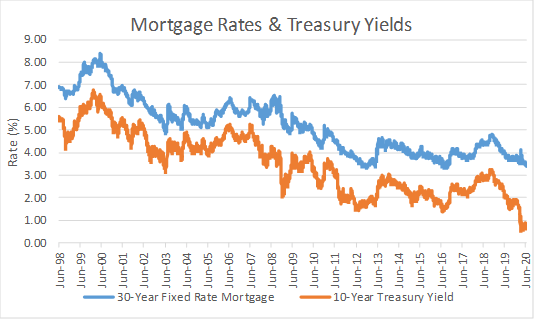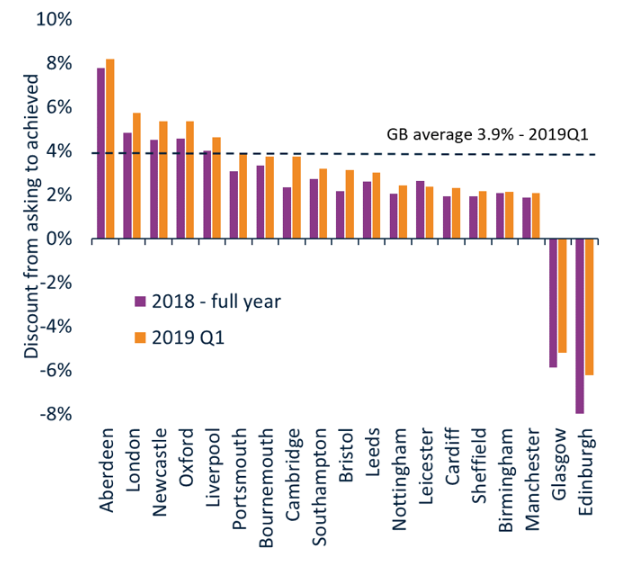If there is no equity in the house, then I would presume she would enable them to take the home if you or any other beneficiaries do not wish to keep the house at a reward of. They would set up to take the house either by Deed in Lieu or through foreclosure however Deed in Lieu is far better for the loan provider too.
We have seen customers who obtained more in 2005 2007 than their homes are still worth today. That does not make the loan a bad loan those customers received more cash than their home is currently worth and were enabled to live in their houses for 7 9 years without needing to make a single payment and now that the loan is higher than the current worth of the home, they are not needed to pay one cent over the current worth toward the reward Helpful hints of the loan.
Numerous of them paid interest on loans that were well above the existing worth of the houses when the values dropped and some paid until they might not pay any longer and after that they had no home to reside in anymore and no money to start over. Your mama was ensured a home to reside in for as long as she wanted/could and didn't have to pay any month-to-month payments for the entire time she lived there (just her taxes and insurance) (why is there a tax on mortgages in florida?).
Your mother has made no payments on her loan for the last 9 years. Please forgive me; I am not insensitive to your mom's situation (how to reverse mortgages work if your house burns). It just was not the reverse mortgage's fault that the whole economy broke down which home worths plunged. I think I simply look at it a various way, thank goodness mother had a reverse home mortgage and not a forward home mortgage that may have needed her to lose the house previously without the defenses that she has had.
She can move out at her leisure (another benefit of the reverse mortgage) and then when she is out and you have actually moved all of her possessions if none of the other relative want the home, merely call the servicer and inform them she is out. They will move to take the property back and you won't even require the support of an attorney. who issues ptd's and ptf's mortgages.
Percentage Of Applicants Who Are Denied Mortgages By Income Level And Race Can Be Fun For Anyone
A "non-borrower" is a person who lives in the home however whose name is not on the loan files. Generally, the non-borrower should move when the customer dies unless HUD standards qualify them to remain. A "co-borrower" is an individual whose name is on the loan files along with the house owner (candidate).
The sharp slump in the real estate market has actually impacted millions of Americans, and elders are among the groups most impacted. This is particularly real of senior citizens who have so-called "reverse mortgages." This kind of mortgage can potentially be a great method for people over the age of 62 to get money out Informative post of their homes.
Reverse home mortgages are not brand-new. But older house owners are progressively relying on them to improve their situations later in life, particularly during a down economy. These kinds of home loans, likewise called House Equity Conversion Home Mortgages (HECMs), allow individuals to withdraw some of their house's equity and get it as a swelling amount, in month-to-month payments, as a credit line or a mix of these options.
Homeowners eligible for reverse mortgages must be at least 62 years old and have to own the property or have a very little exceptional home loan. The residential or commercial property needs to be their principal house and property owners must be free of any defaults on federal financial obligations. Property owners should likewise participate in an informative session about reverse home loans before submitting any HECM loan applications.
Since of a rash of lending institution foreclosures on generally senior homeowners holding reverse home mortgages, the AARP Foundation took legal action against the Department of Real Estate and Urban Development (HUD), challenging a rule that had the effect of contributing to foreclosures. The rule required a beneficiary to pay the full home loan balance to remain in the house after the borrower's death, even if the quantity was more than the marketplace worth of the property.
The Buzz on How Is Freddie Mac Being Hels Responsible For Underwater Mortgages
Reverse home loans can be expensive and complicated for senior house owners, as they are distinct from traditional mortgages. Likewise, a reverse home mortgage can sometimes diminish all of the equity in the houses if the property owners extend the reverse home loan over too long of a period. This frequently arises where the homeowner takes a reverse home mortgage on a presumption of life span, however endures well past the anticipated death date.
This has actually been particularly true for freshly widowed house owners, and some beneficiaries of customers, since of loan provider compliance with an obscure HUD guideline that was instituted in 2008. Prior to the guideline modification in 2008, HUD had followed a policy that borrowers and their successors would not owe more than a house's worth at the time of repayment.
The 2008 rule mentioned that making it through partners, in order to keep their homes, had to settle the reverse home mortgage balance soon after the deaths of their spouses. This was the case no matter whether the making it through spouse's name was on the loan, and no matter the home's then-current value.


That situation, and the associated HUD rule, is what prompted AARP to take legal action against HUD. AARP officially challenged HUD's action in altering this guideline, arguing that it was done arbitrarily by letter, instead of through the required administrative treatment. The fit further declared that HUD's rule modification breached defenses formerly permitted widowed partners to avoid foreclosure.
AARP hoped this would avoid additional prohibited foreclosures from reverse mortgages due Click for info at the time of a debtor's death. In April 2011, HUD rescinded the 2008 guideline that needed making it through spouses not named on the home's title to pay the complete loan total up to keep their houses. The implications of this change are not yet completely clear.
How Why Do Banks Make So Much From Mortgages can Save You Time, Stress, and Money.
But it is very important to talk with a skilled property lawyer to know where you stand. Reverse mortgages should give older house owners more monetary liberty, however when they fail this purpose, they can sadly leave elderly people both homeless and defenseless. Elderly Twin Cities homeowners considering entering into a reverse home loan agreement should consult knowledgeable Minnesota property attorneys like Burns & Hansen, P.A. who issues ptd's and ptf's mortgages.
In addition, if you currently have a reverse mortgage on your house, you need to discuss your scenario with a lawyer experienced in these kinds of mortgages to make certain you and your partner are protected if one you passes away or if your home loses equity because of the recession of the realty market.
A reverse home mortgage is a method for house owners ages 62 and older to leverage the equity in their home. With a reverse home loan, a homeowner who owns their house outright or at least has significant equity to draw from can withdraw a portion of their equity without having to repay it up until they leave the home.